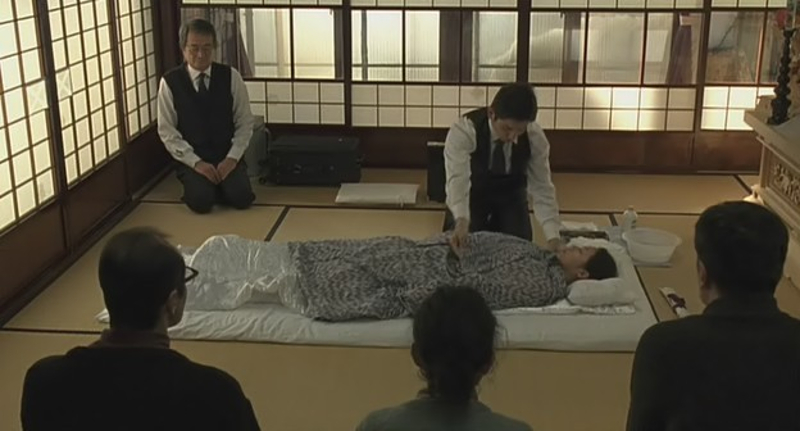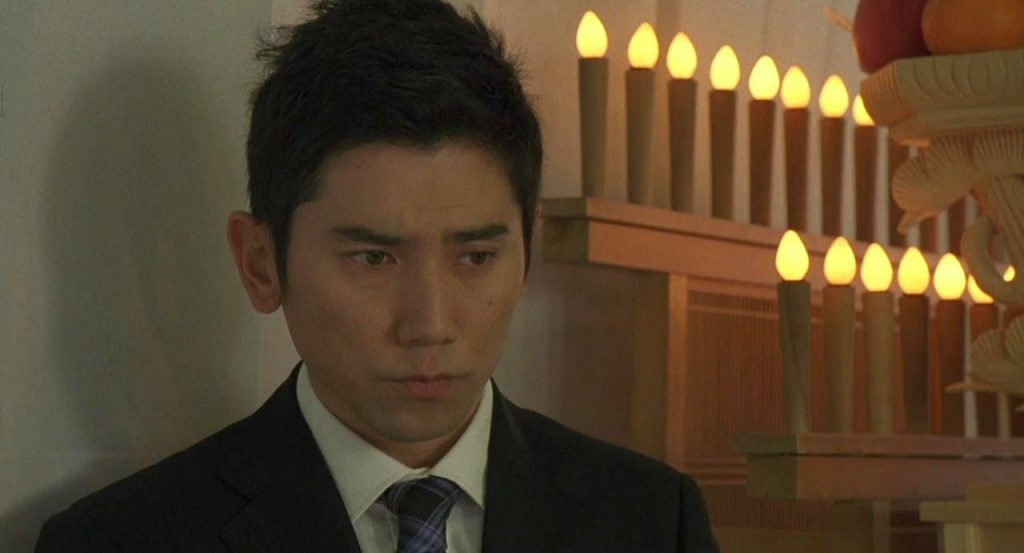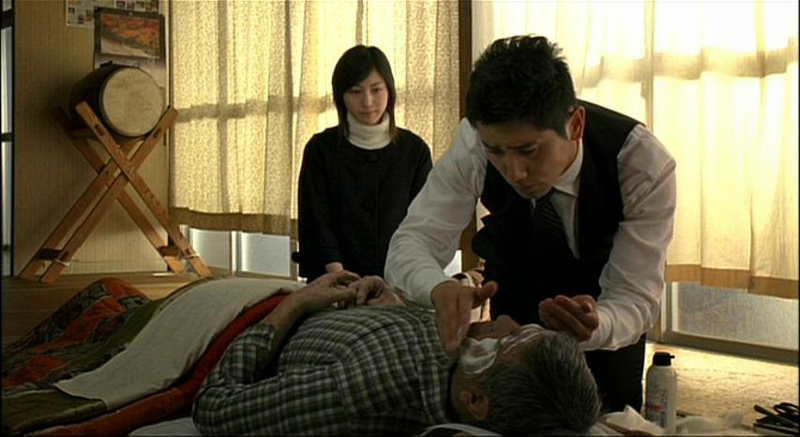Director – Yojiro Takita – 2008 – Japan – Cert. 12a – 130m
*****
An unemployed cellist finds himself working on the encoffination of corpses prior to their cremation – in cinemas Friday, December 4th 2009
Winner of 2009’s Best Foreign Film Oscar (and numerous other awards besides), this Japanese entry is a rarity in that it deals head on with death not in its horrific or violent aspects (as in numerous horror and action movies) but in a life ritual as significant as birth. Death being the last great contemporary Western taboo, we in the West ought to pay attention.
Daigo (Masahiro Motokii – Gemini, Shinya Tsukamoto, 1999) loses his new job as a cellist when the Tokyo orchestra employing him is dissolved, leaving him with a young wife to support and repayments on an expensive cello to find. Selling the instrument, the couple move back to his small home town where Daigo’s late mother has left him a house in her will.

Seeking work, he answers an ad dealing with ‘departures’, believing it a travel agency. The ad should however have read ‘the departed’, because he’s required to deal with the encoffination of corpses prior to their cremation, preparing the bodies for entry into the next life. Encouraged by likeable boss Sasaki (Tsutomu Yamazaki – A Taxing Woman, 1987, Tampopo, 1985, The Funeral, 1984, all Juzo Itami, Kagemusha, 1980, Red Beard, 1965, High And Low, 1963, all Akira Kurosawa), Daigo slowly comes to terms with his strange new career, eventually discovering familial redemption when the chance comes to see the body of his long-estranged father, not seen since Daigo’s childhood.

While the piece tries a little too hard to deliver narrative closure and suffers in places from an unnecessarily emotional score by Joe Hisaishi (who has written similar but superior scores for fellow countrymen Hayao Miyazaki and Takeshi Kitano), its discreet yet unflinching approach to death impresses. One presumed female corpse turns out to possess a male member (hidden from view because the camera takes the view of relatives at a funeral, who are protected from the nakedness of their departed loved one by the encoffineer’s sheet covering the body from their viewpoint). Daigo’s first case is an old lady found by police after being dead at home for two weeks. Subsequent jobs include the lady who runs (or ran) the local bath house – who we get to know through the course of the film before she dies – and, finally, Daigo’s dad, who we only ever meet in flashback and as a corpse.

Much is made of the taboo nature of the work, with friends (and indeed spouse) distancing themselves from Daigo on discovering the nature of his work only to later realise its great value when they have to come to terms with the death of a loved one. There are also some great truths here about the importance of work giving value to both individuals who undertake it and the way in which such work can serve its society.
The film commendably refuses to operate within any one single religious system, the corpses with their mourners belonging rather to a variety of religions, with one funeral being shown as specifically Christian. Within this framework, however, director Takita nevertheless articulates some pretty deep ideas about dealing with death and bereavement all too rare in a movie. Which makes it, unexpectedly, one of this year’s must see films.
Original UK release: Friday, December 4th 2009.
Winner of Best Foreign Language Film at the 2008 (81st) Oscars.
Trailer:
Originally reviewed for Third Way.
